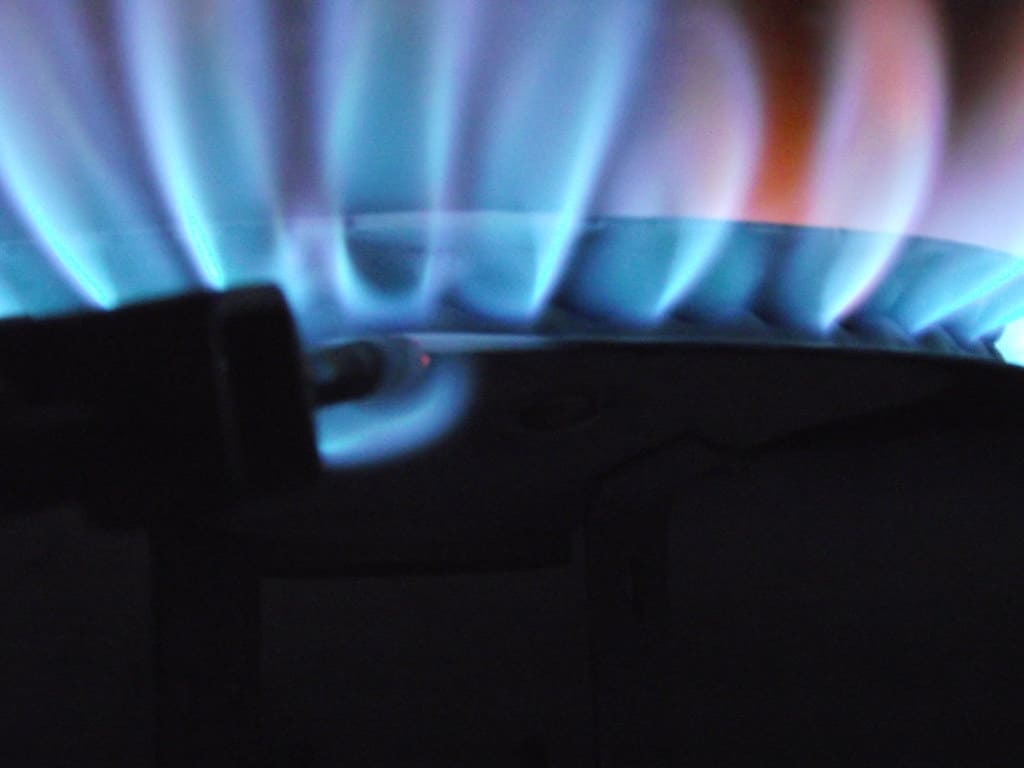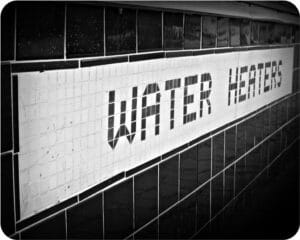Water heater not working?
A non-working water heater is not just an inconvenience; it disrupts daily routines like showering, cleaning, and even cooking. It also impacts household cleanliness and hygiene by failing to combat bacteria, dirt, and grime. For homeowners in the DMV region, this issue is all too familiar, especially during colder months when reliable hot water is a must.
If your water heater is not working, this guide will walk you through actionable troubleshooting steps to identify and potentially fix the issue. From understanding common causes to knowing when to call in experts like G.A. Eberly Plumbing & Heating, you’ll have all the tools you need to restore hot water quickly and safely.

“water heater” by jasonwoodhead23 is licensed under CC BY 2.0
Introduction to Water Heater Troubleshooting
Water heater troubleshooting is an essential process to identify and fix issues with your electric water heater or gas water heater. A leaking water heater or a faulty heating element can cause inconvenience and increase energy bills.
Regular maintenance can help prevent common water heater problems, such as sediment buildup and corrosion.
In this guide, we will walk you through the steps to troubleshoot your water heater, including checking the circuit breaker, inspecting the heating elements, and testing the thermostat. Whether you have an electric hot water heater or a gas water heater, our troubleshooting guide will help you identify and fix the issue.
Safety First: Precautions Before Troubleshooting
Before you examine your water heater, safety should be your top priority. Here are the key steps:
- Turn off power or gas supply to your water heater. For electric water heaters, switch off the power at the circuit breaker. For gas water heaters, turn off the gas shut-off valve.
- Inspect for leaks or standing water around the unit. If you find water pooling, disconnect power immediately to avoid electrical hazards.
- Check for any signs of structural damage, such as rust, corrosion, cracks, or dents on the tank and pipes.
- Have the water heater inspected to ensure it is safe to handle, especially if it is a gas-powered unit.
Now that you’re prepared, let’s move on to diagnosing the problem.

Photo by Glenn Carstens-Peters on Unsplash
Check for Basic Issues
Start with the simplest and most common culprits.
No Hot Water? Check the Power Source
Electric Water Heater: Ensure the unit is receiving power. If the circuit breaker has tripped, reset it to restore power. Verify that the circuit breaker hasn’t tripped or if there’s a blown fuse in the fuse box.
Gas Water Heater:
- Look at the pilot light. If it’s out, follow the manufacturer’s instructions to relight it.
- Inspect the gas valve to make sure it’s in the “on” position.
Inspect the Thermostat
- Ensure the thermostat is set to an appropriate temperature, typically between 120–140°F. If it’s set too low, this could explain why the water isn’t heating effectively.
Check the Water Supply
Verify that cold water is flowing into the tank properly. Ensure that air is not trapped in the system, as this can affect the water heater’s functionality. A clogged cold-water inlet valve or reduced water flow can disrupt the heating process.
Identify Warning Signs and Symptoms
Warning signs can clue you in on what’s wrong with your water heater. Here are some key symptoms to watch for:
Discolored Water
If you notice rusty or discolored water, it may indicate corrosion inside the tank or damage to the anode rod.
Unusual Noises
Hearing banging, popping, or hissing sounds? These noises are usually caused by sediment buildup at the bottom of your tank or issues with the heating element.
To prevent these issues, it is crucial to have your water heater regularly flushed to remove sediment and maintain optimal performance.
Leaking Water Heater
Leaks are a serious problem, often due to a faulty drain valve, damaged pipes, or cracks in the tank. Shut off the water supply immediately if you notice leaks.
Water Temperature Issues
- No Hot Water: Faulty heating elements, a malfunctioning pilot light, or a broken gas control valve. An electric heating element is crucial for maintaining proper water temperature; if it is faulty, it may lead to no hot water.
- Lukewarm Water: The upper element or thermostat might need to be replaced.
- Scalding Water: Adjust the thermostat to prevent overheating.
Inspect the Heating System
Electric Water Heater
Inspect the heating elements for signs of damage. Testing the resistance of the heating elements is crucial to diagnose any issues effectively. A multimeter can help you test the continuity of the upper and lower heating elements.
Gas Water Heater
- Check the burner assembly and pilot light to ensure they’re working correctly.
- Examine the gas control valve to confirm that gas is reaching the burner. If it’s faulty, it’ll need replacing.
Sediment Buildup
Over time, sediment can accumulate at the bottom of the tank, reducing efficiency and causing noises. Regularly flushing the system is crucial to prevent future issues and ensure reliable performance. Drain and flush the tank to remove buildup.
Helpful Resources and Links
Here are valuable resources to help you better understand water heater maintenance and repair:
This Old House – Water Heater Troubleshooting
Learn how to identify and resolve common water heater issues with expert advice.
Consumer Reports – Water Heater Ratings and Reviews
Compare water heater models and find the best option for your home.
Energy.gov – Water Heater Maintenance Tips
Learn practical tips and advice for maintaining your water heater to improve its efficiency and lifespan.
Home Depot – Water Heater Buying Guide
Discover the differences between water heater types to make an informed buying decision.
Angi – How to Fix a Leaking Water Heater
Step-by-step guidance on how to address common water heater leaks.
https://www.angi.com/articles/how-fix-leaking-water-heater.htm
Feel free to visit these links for additional insights to keep your water heater running smoothly or to decide when it’s time for professional help!
Common Causes of Water Heater Failure
Common causes of water heater failure include a faulty thermostat, burned-out heating elements, and leaks around the heating elements. Sediment buildup in the tank can also cause issues with your electric water heater or gas water heater.
A faulty gas valve or pilot light can prevent your gas water heater from heating water efficiently. Regular maintenance, such as flushing the tank and inspecting the anode rod, can help prevent these issues. It’s also essential to check the drain valve and ensure it’s not clogged, as this can cause leaks and other problems.
By identifying and addressing these common causes of water heater failure, you can extend the life of your water heater and prevent costly repairs.
Heating Water Efficiently
Heating water efficiently is crucial to reduce energy bills and prolong the life of your water heater. One way to achieve this is by using a thermal expansion tank, which helps regulate water pressure and prevent leaks.
You can also install a new water heater with a high-efficiency rating, such as an electric water heater with a high-efficiency heating element. Regular maintenance, such as checking the temperature and pressure relief valve, can also help ensure your water heater is operating efficiently.
Additionally, consider installing a tankless water heater, which can provide continuous hot water while reducing energy consumption. By taking these steps, you can heat water efficiently and reduce your energy bills.
Maintenance to Prevent Common Issues
Routine maintenance can prevent costly repairs down the road. Here’s a checklist to keep your system running efficiently:
- Flush the Tank annually to remove sediment and improve heating efficiency.
- Inspect the anode rod every 2–3 years and replace it if it’s heavily corroded.
- Check the temperature and pressure relief valve on a regular basis to ensure it operates correctly.
Regular maintenance is crucial to prevent future issues and ensure the longevity and reliable performance of your water heater.
G.A. Eberly’s team of experts is happy to help with routine maintenance for both electric water heaters and gas water heaters. Contact us at 301-856-6900 today.
When to Call a Professional
Some issues may go beyond DIY fixes or require advanced tools, particularly if you’re dealing with:
- Gas leaks or carbon monoxide concerns.
- Severe leaks and water damage.
- Malfunctioning thermostats or circuit boards.
- The need for a new water heater installation.
- The replacement of old or malfunctioning water heaters to avoid further issues and ensure efficient water heating.
The licensed professionals at G.A. Eberly Plumbing & Heating specialize in diagnosing and repairing common water heater problems quickly and safely. With over a century of service, we’re the DMV region’s trusted choice for plumbing and heating solutions.
Give us a call at 301-856-6900, or visit our website to schedule a service today.
Take Control of Your Water Heater Troubles | Water Heater Not Working
A water heater not working doesn’t have to mean crisis mode. By following the troubleshooting steps in this guide, you’ll be able to identify the issue and take appropriate action.
Whether it’s a minor fix or a major repair, always prioritize safety and regular maintenance to extend the life of your system. Properly selecting, maintaining, and troubleshooting hot water heaters is crucial to prevent future problems and ensure efficient operation.
Still unsure? Don’t hesitate to reach out to G.A. Eberly Plumbing & Heating for professional service. Call us now at 301-856-6900 or email us at service@gaeberly.com for expert water heater repair in the DMV area.


